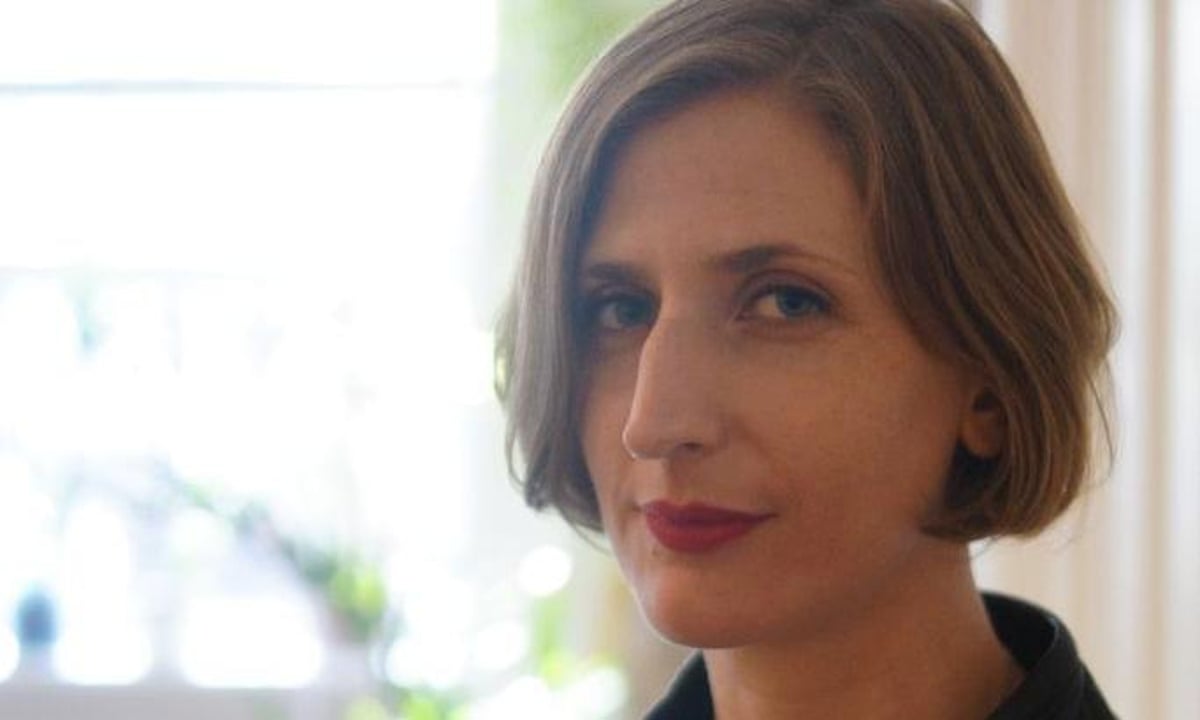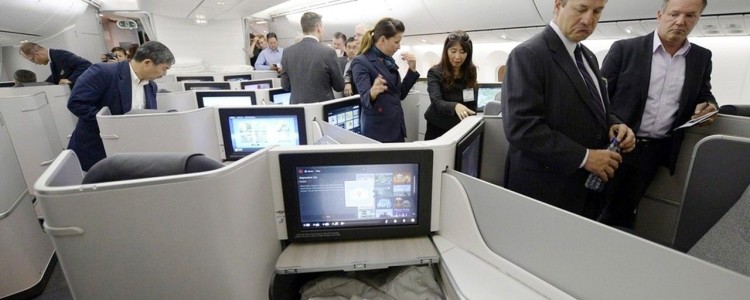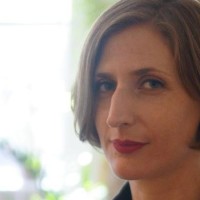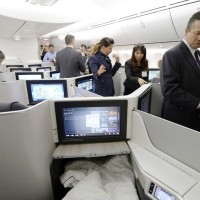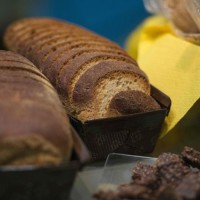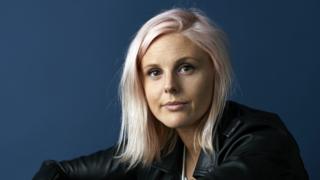 Image copyright Her
Image copyright Her When Robyn Exton first launched her dating and social networking app for lesbians and bisexual women, a lack of cash for advertising meant she’d go to nightclubs armed with bottles of spirits.
“In the early days I’d go to nightclubs with a bottle of sambuca in one hand, and tequila in the other, and encourage girls to download the app in return for a shot,” says the 29-year-old.
Then at UK lesbian, gay, bisexual and transgender (LGBT) festivals Manchester and Brighton Pride, she targeted women by standing outside the portable toilets handing out toilet paper with flyers promoting the app.
This was back in 2013, and Ms Exton’s low cost, but innovative, approach to marketing soon saw user numbers rise steadily, then further gaining traction thanks to positive word of mouth.
 Image copyright Thinkstock
Image copyright Thinkstock Founded in London, but with its headquarters moving to San Francisco last year in order to be closer to US investors, and to be in the thick of the burgeoning social network scene, the Her app now has more than one million female users around the world.
‘Crazy’
Her was born from Ms Exton’s frustration with existing lesbian dating websites and apps, which she didn’t think were good enough.
She says the market was dominated by “dating sites that were initially created for gay men, and tuned pink for lesbians”.
 Image copyright Her
Image copyright Her Ms Exton had an inside business knowledge of this because at the time she was working for a London-based branding agency, where her client made dating platforms.
The light bulb moment when she decided to do something about the situation came when she was in a pub with two friends, one of whom had split with her girlfriend.
Ms Exton says: “We told her you’ve got to join these sites to meet someone else, there’s no other choice.
“It was crazy because I knew the industry because of my client, and I thought, ‘is this the best that exists to women? Because it’s embarrassing, and humiliating that we are forced to use these’.”
So Ms Exton quit her job, and began work on developing Her.
Moving in with her father to save money, she worked in a pub on evenings and weekends, and taught herself how to computer programme.
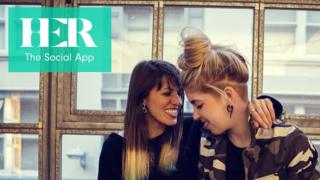 Image copyright Her
Image copyright Her Armed with 10,000 of savings, including a 4,000 lottery win, Ms Exton launched the first incarnation of Her in 2013, initially calling it Dattch, which stood for “date catch”.
To secure support and business advice she successfully gained a place on start-up mentoring programme Wayra, which is run by telecommunications firm Telefonica.
Initially just a dating app, additional material has been added over the past three years, including a news section, and event listings.
“We made it much more of a social experience for our users,” says Ms Exton.
“A large percentage of our users are in a relationship, but use the app to find out what’s happening in the city, read LGBT content, and make friends in their area.”
Meanwhile, the name was changed to Her in March 2015.
“People couldn’t spell Dattch,” says Ms Exton.
Paid-for version
Since its launch, Her has raised $2.5m (1.7m) in funding, with US investors including Michael Birch, founder of social network Bebo, and Alexis Ohanian, co-founder of news platform Reddit.
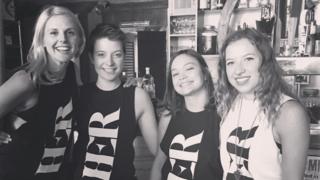 Image copyright Her
Image copyright Her However, it has yet to make any money, as Ms Exton has so far followed the well-trodden path of gaining traction by offering a free service.
Revenues may finally start to arrive later this year when Her launches a premium, paid-for version of the app.
Ms Exton won’t be drawn on prices, and what it will entail, but she does say there will be “extra value-added features”.
Technology analyst Britanny Carter of research group IbisWorld says that apps such as Her, that cater to specific demographics, are able to effectively carve a niche within the online dating space.
She adds: “Including content to further engage users is an excellent way for Her to encourage app usage, especially when the user base is small and growth is critical.”
Yet Ms Carter cautions that Her must always be on guard against potential competitors.
“Like most dating apps, the switching costs between apps is low, so Her will likely face competition from other apps looking to cater to the lesbian market.”
‘Thank you’
Now based in San Francisco with five colleagues, while two other Her employees remain in London, Ms Exton says the app is always on guard against men trying to sign up.
The business estimates that 15% of people trying to join are men pretending to be women.
 Image copyright Her
Image copyright Her To prevent this, all users have to verify their gender by signing up through their Facebook or Instagram accounts, while Her has other checking mechanisms in place, and genuine users are “fast to report people that don’t respect the community”.
On a much more positive note, Ms Exton says she is proud to to hear stories about women who are able to “figure out a big part of their sexuality” thanks to joining Her.
She recalls the time when a girl came up to her at the end of an event she was speaking at.
“She just wanted to say thank you,” says Ms Exton. “She had come across Her… and she could now meet with a group of women similar to her, who made her feel OK, and weren’t going to ask her what she identifies as.”
Read more: http://www.bbc.co.uk/news/business-36202226

